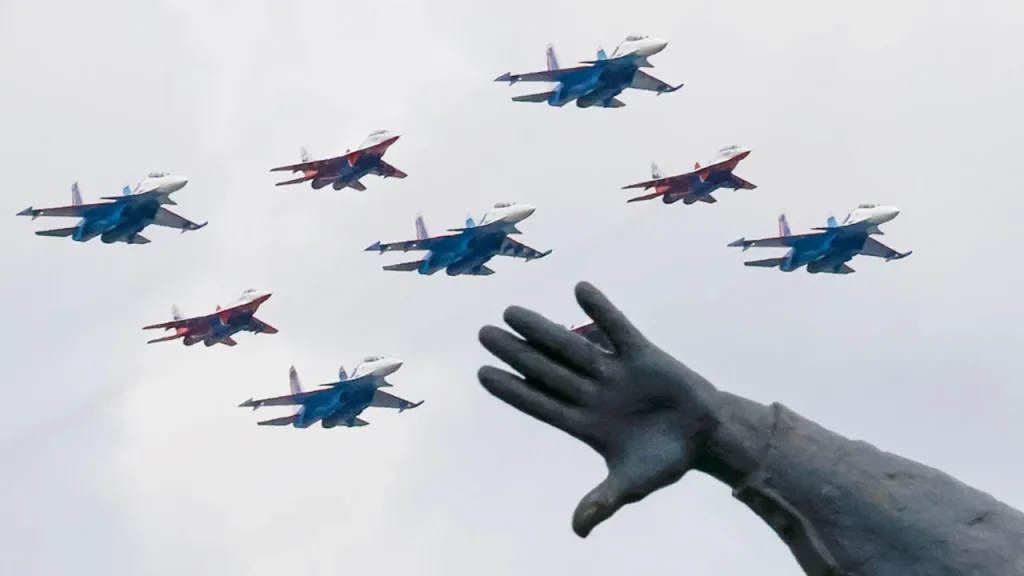EU Chief Calls for Bold Action Against Russia’s Hybrid Warfare
European Union Commission President Ursula von der Leyen has issued a stark warning about Russia’s escalating “hybrid warfare” campaign against Europe, urging immediate and coordinated action to counter these threats. In a powerful address to the EU Parliament, von der Leyen highlighted a disturbing pattern of provocations that has unfolded across the continent in recent weeks. These incidents, she argues, represent a deliberate strategy designed to test European resolve, sow division, and undermine support for Ukraine during this critical time of geopolitical tension.
The recent spate of airspace violations stands as perhaps the most visible manifestation of Russia’s hybrid campaign. In just two weeks, Russian drones and warplanes violated the airspace of six European nations, forcing fighter jets to scramble, grounding commercial flights, and directly endangering EU citizens. Von der Leyen was unequivocal in her assessment: “One incident may be a mistake. Two incidents a coincidence. But three, five, ten – this is a deliberate and targeted gray zone campaign against Europe, and Europe must respond.” This pattern of aerial incursions appears designed to operate in what military strategists call the “gray zone” – provocative actions that fall short of open warfare but clearly serve hostile intent. The Russian approach seems calculated to maintain plausible deniability while steadily increasing pressure on European nations and testing their defensive capabilities and political will.
These airspace violations represent just one facet of a broader campaign that includes attacks on critical infrastructure and democratic processes. Von der Leyen pointed to a consistent pattern of Russian aggression targeting undersea cables, airports, logistics hubs, and election systems across Europe. These operations employ both direct force and sophisticated cyber techniques, creating a multi-dimensional threat landscape that challenges traditional security paradigms. “These incidents are calculated to linger in the twilight of deniability,” von der Leyen explained, emphasizing that these are not random acts but components of “a coherent and escalating campaign to unsettle our citizens, test our resolve, divide our union and weaken our support for Ukraine.” By publicly labeling these activities as “hybrid warfare,” the EU chief is signaling a shift toward more explicit recognition of the threat – an important first step in mounting an effective response.
The EU is already mobilizing significant resources to counter this challenge, with von der Leyen highlighting nearly $930 billion in defense expenditures planned through 2030. This represents what she called the largest “surge of defense spending in the history of the Union” – a reflection of how seriously European leaders now view the Russian threat. However, the Commission president made clear that conventional military spending alone will not suffice against hybrid warfare tactics. “Tackling Russia’s hybrid war is not only about traditional defense,” she explained. “It is about software for drones. It is about spare parts for pipelines. It is about rapid cyber response teams, and it is about public information campaigns to spread awareness.” This comprehensive approach recognizes that hybrid warfare requires hybrid defense – integrating military, technological, informational, and civil society elements into a coordinated strategy that can address threats across multiple domains simultaneously.
Individual European nations are already taking concrete steps to counter specific aspects of Russia’s gray zone activities. Germany, for instance, is moving to grant local police forces the authority to shoot down drones, following incidents that disrupted operations at Munich airport. German Chancellor Frederick Merz has been forthright about the threat, stating: “Drone incidents threaten our security. We will not permit that.” The German government is strengthening federal police powers to detect and counter drones more quickly, and reports indicate that laser systems are being installed to better track unmanned aerial vehicles after several disruptions at European airports. These practical measures represent an important tactical response to immediate threats, but von der Leyen’s address suggests that a broader strategic rethinking is required – what she termed a “new mindset” for European security.
Perhaps most significantly, von der Leyen’s speech represents a call for psychological preparation among European citizens and leaders. By openly acknowledging Russia’s hybrid warfare campaign and urging Europeans to “be ready to leave our comfort zone,” she is preparing the public for a prolonged contest that may require sacrifices and new thinking about security. This psychological dimension is crucial, as hybrid warfare often aims to exploit social divisions, undermine trust in institutions, and create a sense of helplessness among target populations. By framing Russia’s actions as a coherent strategy that can be named, understood, and countered, von der Leyen is attempting to build the resilience and determination needed for what may be a long-term confrontation. The stakes are high – not only for European security but for the continued support of Ukraine and ultimately the maintenance of the rules-based international order that Russia’s actions seek to undermine.


